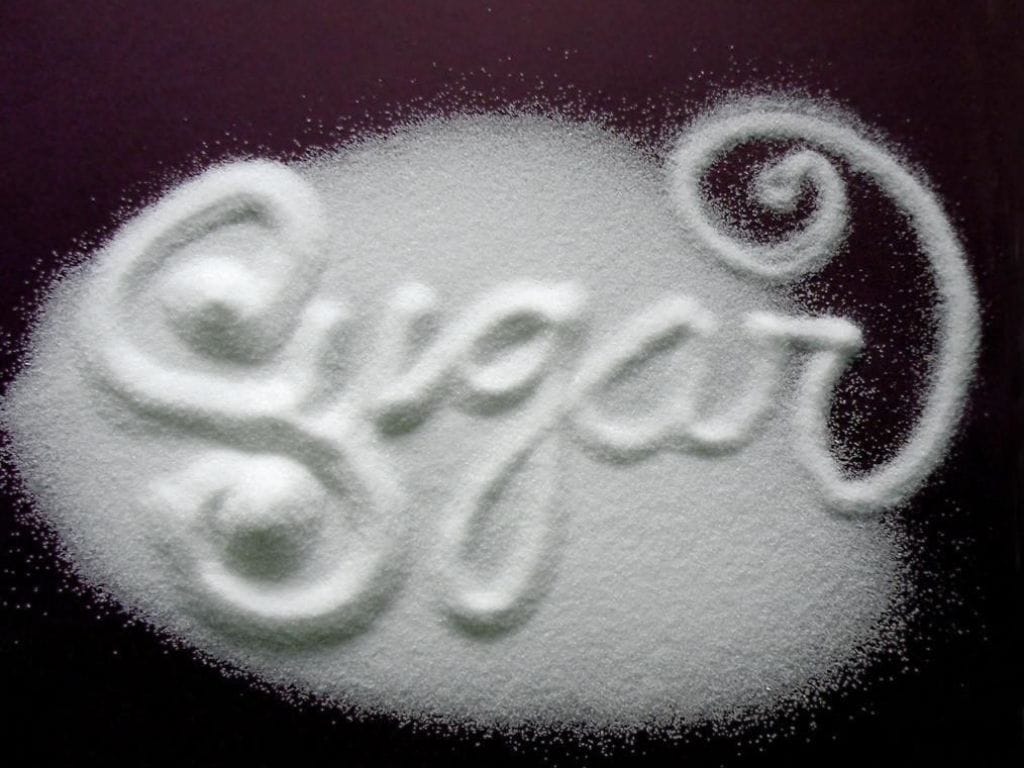10 Reasons Why Sugar is a Sweet Poison
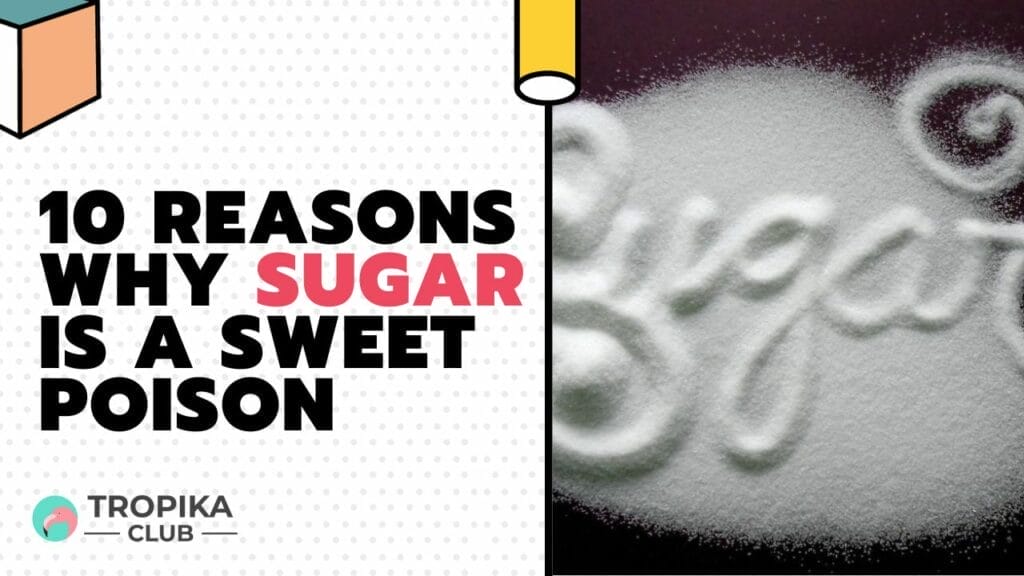
No Time to Read? Here’s a Snappy Summary of This Article
- Sugar’s Sneaky Names: Watch out for aliases like sucrose and high fructose corn syrup—sugar’s stealthy accomplices in processed foods.
- Sugar’s Brain Hijack: It’s not just your waistline at risk—sugar can mess with your brain, fueling addictive cravings.
- Sugar and Aging Allies: Bid farewell to youthful skin—sugar forms advanced glycation end products, accelerating the aging process.
- Diabetes Dance: Excessive sugar intake twirls you into a high-risk waltz with type 2 diabetes—keep those sugar levels in check.
- Sweet Sabotage on Immunity: Sugar weakens your immune system, making you an easy target for pesky infections and illnesses.
- Gut Woes and Sugar Drama: Sugar feeds harmful gut bacteria, triggering a chaotic cascade that spells trouble for your digestive health.
Table of Contents
- No Time to Read? Here’s a Snappy Summary of This Article
- 1. The Hidden Culprit in Local Cuisine
- 2. Sugar and Chronic Diseases
- 3. The Addiction Equation
- 4. Weighty Concerns
- 5. Sugar’s Impact on Mental Health
- 6. The Sweet Deception of Energy
- 7. Sugar and Aging
- 8.Dental Dilemmas
- 9. The Economic Sweet Burden
- 10. Making a Change
- Meanwhile, Check Out Tropika Club’s Ecosystem of Websites
Introduction
Sugar, often cloaked in the guise of sweetness, has a less savory side that lurks beneath its granules. In Singapore, where food is a national passion, the omnipresence of sugar in our diets is a growing concern. This article peels back the layers on why this seemingly innocent ingredient may be more of a foe than a friend to our well-being.

1. The Hidden Culprit in Local Cuisine
Singapore’s culinary scene is a gastronomic delight, with its hawker centres and food courts offering a plethora of dishes that sing with flavor. However, lurking within these delectable offerings is sugar, often added in copious amounts to enhance taste. From the sweet glaze that coats our barbecued meats to the syrup in our favorite desserts, sugar is everywhere. Its omnipresence in our diet is not without consequence, as it stealthily contributes to a host of health issues, including insulin resistance and metabolic syndrome, often without our conscious awareness.

2. Sugar and Chronic Diseases
The prevalence of chronic diseases in Singapore is a growing concern, with sugar playing a significant role in this narrative. The overconsumption of sugar-sweetened beverages and snacks is linked to an increased risk of developing conditions such as type 2 diabetes, cardiovascular diseases, and even certain cancers. These illnesses not only diminish the quality of life but also place a heavy burden on our healthcare system, prompting the need for a critical evaluation of our dietary habits.

3. The Addiction Equation
The addictive nature of sugar is likened to that of certain narcotics, with scientific evidence showing how sugar stimulates the same pleasure centers in the brain as drugs like cocaine. This biochemical dependency can lead to a perpetual cycle of cravings and overconsumption, which is particularly challenging to overcome in Singapore, where festive treats and sweetened drinks are cultural staples. The result is a society grappling with the consequences of sugar addiction, manifesting in rising obesity rates and associated health complications.

4. Weighty Concerns
Singapore’s fast-paced lifestyle often leads to the consumption of quick and convenient food options, which are typically high in sugar. This dietary pattern has contributed to an alarming increase in obesity rates among both adults and children. The implications of this are profound, extending beyond the individual to the societal level, where the cost of managing obesity-related health conditions can be substantial.
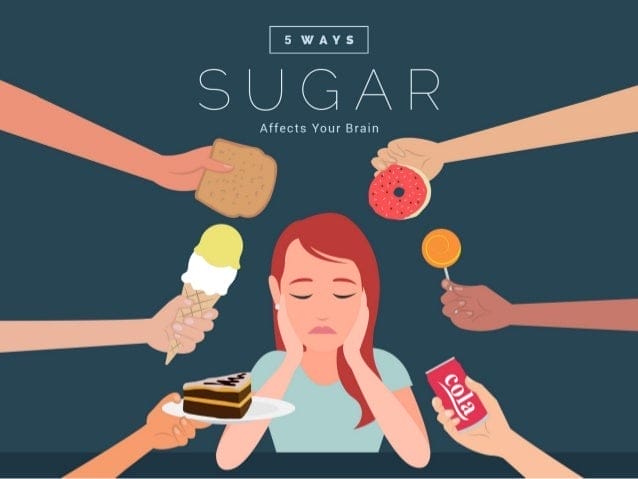
5. Sugar’s Impact on Mental Health
The impact of sugar on mental health is an emerging area of concern. Studies suggest a correlation between high sugar intake and the exacerbation of mental health issues, including depression and anxiety. In a society where the pace of life is fast and the pressure to perform is high, the additional burden of sugar on mental well-being cannot be ignored. This is particularly relevant in Singapore, where the conversation around mental health is gaining prominence and the pursuit of a balanced lifestyle is becoming increasingly important.

6. The Sweet Deception of Energy
Sugar is often sought for its promise of instant energy, yet this is a deceptive trade-off. The initial rush of energy quickly dissipates, leading to a crash that leaves individuals feeling more fatigued than before. This cycle of highs and lows can disrupt blood sugar levels and overall energy balance, which is particularly detrimental in a productivity-driven society like Singapore’s.
_
Read Also:
Peanut Allergy Awareness: 10 Essential Facts
_
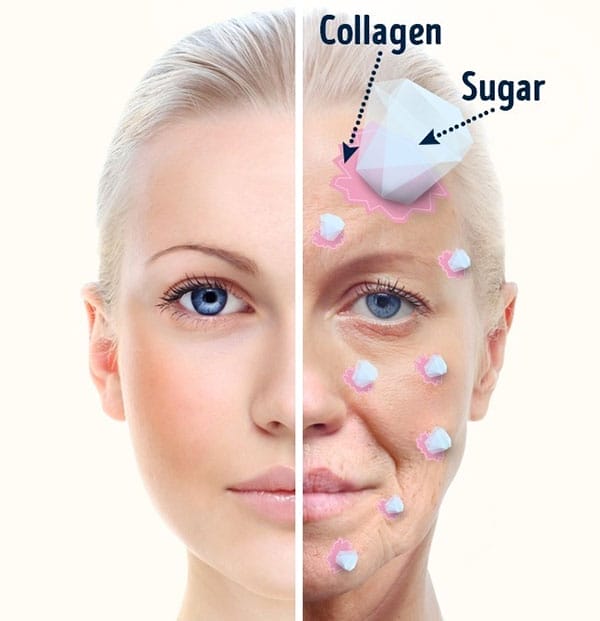
7. Sugar and Aging
The quest for youth and vitality is universal, and in Singapore, where there is a thriving beauty and wellness industry, the effects of sugar on aging are of particular concern. Sugar contributes to the aging process through the formation of advanced glycation end products (AGEs), which can damage collagen and elastin, the proteins that keep skin firm and elastic. Beyond skin deep, sugar can also accelerate the aging of internal organs, impacting overall longevity and quality of life.
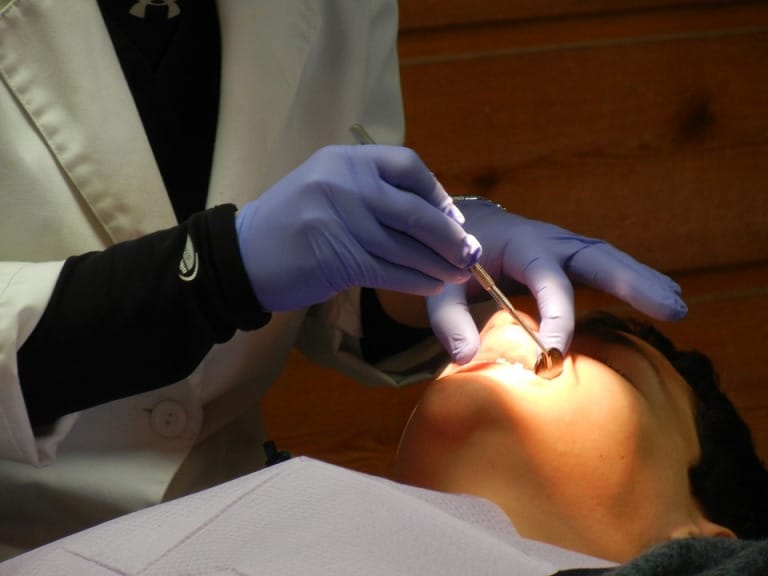
8.Dental Dilemmas
Dental health is a significant aspect of overall well-being, yet it is often compromised by high sugar consumption. In Singapore, where dental care is an essential part of health services, the prevalence of dental caries and other sugar-related dental issues remains high. The implications extend beyond discomfort and aesthetics, as poor dental health can lead to more severe health complications if left unaddressed.
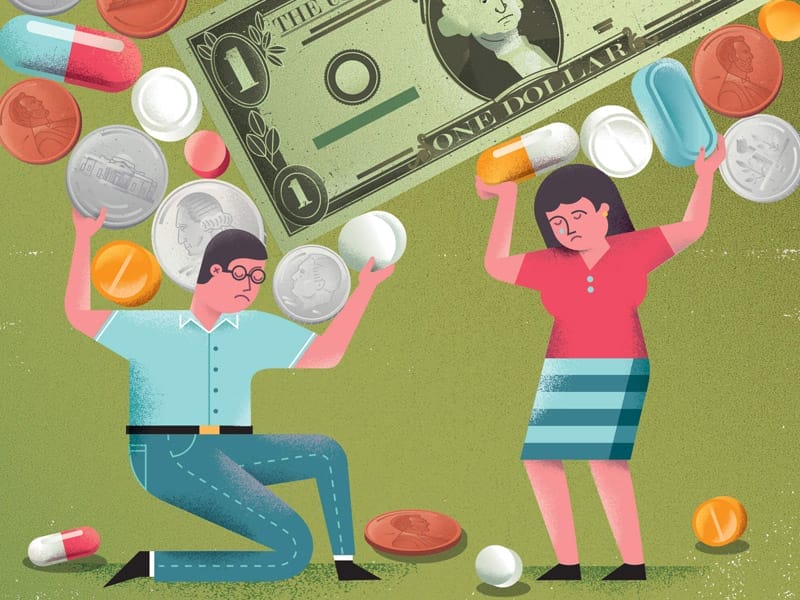
9. The Economic Sweet Burden
The economic implications of sugar consumption are far-reaching. In Singapore, the healthcare costs associated with treating sugar-related health conditions are substantial. Moreover, the loss of productivity due to health issues stemming from excessive sugar intake can have a ripple effect on the economy. This economic burden calls for a collective effort to reduce sugar consumption and promote healthier dietary choices.

10. Making a Change
The movement towards a reduced sugar intake is gaining momentum in Singapore. With increased awareness of the health risks associated with sugar, individuals are seeking alternatives and adopting more mindful eating practices. Policymakers are also stepping up, implementing measures such as the sugar tax and educational campaigns to encourage healthier choices. This collective shift is a pivotal step towards safeguarding the nation’s health and ensuring a vibrant future for all Singaporeans.
Conclusion
Nestled in the vibrant heart of Southeast Asia, Singapore stands as a bustling metropolis, a melting pot of cultures, and a beacon of modernity. Yet, beneath the city’s gleaming facade, it grapples with a silent adversary – the sweet poison, sugar. This battle is not unique to Singapore; it mirrors a global challenge that resonates across borders and continents.
The omnipresence of sugar in our diets, often hidden in the most unsuspecting of foods, poses a significant health risk. Recognizing this risk is the first crucial step towards a healthier tomorrow for the nation. It’s a journey that begins with awareness, extends into education, and culminates in action.
In Singapore, where food is a celebrated part of the national identity, the challenge is even more pronounced. The local cuisine, a delightful blend of flavors, often leans towards the sweeter side. This makes the task of reducing sugar intake a complex one, requiring a delicate balance between preserving cultural heritage and promoting health.

Frequently Asked Questions (FAQ)
Q: How can I reduce my sugar intake without feeling deprived?
A: Swap sugary snacks with fresh fruits, explore sugar substitutes, and gradually decrease added sugars in your diet.
Q: Are all sugars equally harmful, or are some better than others?
A: While natural sugars in fruits are accompanied by fiber, added sugars in processed foods pose a higher risk.
Q: Can sugar impact mental health, and how can I maintain a sugar-conscious diet for better well-being?
A: Excessive sugar consumption may contribute to mood swings; focus on whole foods and mindful eating for mental health.
Q: What are some sneaky names for sugar in ingredient lists?
A: Keep an eye out for aliases like sucrose, high fructose corn syrup (HFCS), and other hidden sweeteners in packaged foods.
Q: Is it possible to satisfy a sweet tooth with healthier alternatives?
A: Absolutely! Opt for natural sweeteners like honey or maple syrup, and explore sugar-free recipes for guilt-free indulgence.
Q: Can sugar impact skin health, and what dietary changes can promote a radiant complexion?
A: Excessive sugar may accelerate aging; prioritize a diet rich in antioxidants, vitamins, and hydration for glowing skin.

Have an Article to Suggest?
Tropika Club is always looking for new and exciting content to feature in their magazine and they value the input of our readers. If you have any noteworthy content or articles that you believe would be a great addition to Tropika Club’s magazine, we are open to suggestions and encourage you to reach out to us via email at [email protected]. By doing so, Tropika Club values your expertise and knowledge in the matter and appreciates your willingness to help. We will review your recommendations and update our list accordingly
Meanwhile, Check Out Tropika Club’s Ecosystem of Websites
Tropika Club Magazine – Tropika Club Magazine is a Singapore-based publication that features articles on a wide range of topics with a focus on local businesses and content for the region. The magazine emphasizes supporting local businesses through its #SupportLocal initiative, which includes coverage of everything from neighborhood hawker stalls to aesthetic clinics in town. In addition to highlighting local businesses, Tropika Club Magazine also covers a variety of local content, including beauty, lifestyle, places, eats, and what’s on in Singapore and the Asia Pacific region.



